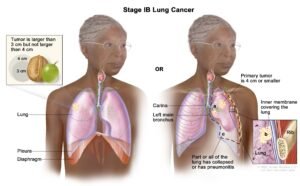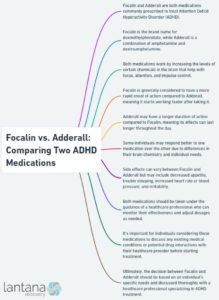Neurotransmitters_ Roles in Brain and Body
Understanding Neurotransmitters: Their Role in the Brain and Body
Neurotransmitters are essential chemical messengers that influence everything from movement to emotions and survival. These substances transmit signals between nerves and impact various body systems, including the brain, muscles, digestive tract, and heart. Key neurotransmitters include serotonin, dopamine, epinephrine, acetylcholine, and GABA (gamma-aminobutyric acid), each playing a unique role in how our bodies and minds function.
How Neurotransmitters Work
Neurotransmitters are released by neurons or glands and travel to target cells where they bind to receptors. These receptors then either stimulate or inhibit cellular activity depending on the neurotransmitter’s function. With over 100 different neurotransmitters identified, many are crucial to both physical and mental health, and their effects can often be regulated by medication.
Excitatory vs. Inhibitory Neurotransmitters
Each neurotransmitter can have different effects depending on the receptor and target cell. Some are excitatory, promoting activity, while others are inhibitory, calming or suppressing certain functions. This balance is vital for maintaining healthy brain and body processes.
Epinephrine and Norepinephrine: The Stress Responders
These fast-acting neurotransmitters help regulate heart rate, blood pressure, breathing, and digestion. Epinephrine (adrenaline) spikes during moments of excitement or stress, triggering the body’s “fight or flight” response. Norepinephrine acts similarly but with longer-lasting effects and a slightly slower onset.
Acetylcholine: Movement and Memory
Acetylcholine is key for muscle control and cognitive functions such as memory. It’s released by motor neurons and prompts muscle contraction. Interestingly, during REM sleep, acetylcholine activity is high, but muscle movement is inhibited to prevent physical reactions to dreams.
Serotonin: Mood, Sleep, and More
Serotonin helps regulate mood, appetite, sleep, immunity, and digestion. It works closely with other neurotransmitters to support overall emotional and physiological balance. Low levels of serotonin are commonly linked to depression and anxiety.
Dopamine: Motivation and Movement
Dopamine influences motivation, reward, and motor control. It plays a major role in addictive behaviors, as activities like winning, praise, or even certain foods can increase dopamine levels. It’s also essential in regulating smooth muscle movement and coordination.
GABA: The Brain’s Calming Agent
GABA is a primary inhibitory neurotransmitter that reduces neuron activity, promoting calm and preventing overstimulation. It plays an important role in sleep, relaxation, and the prevention of neural overexcitation. Certain anti-epileptic medications enhance the effects of GABA.
Common Disorders Linked to Neurotransmitter Imbalances
An imbalance in neurotransmitter levels—either too much or too little—can lead to various physical and mental health conditions.
Parkinson’s Disease and Dopamine Deficiency
Parkinson’s is a movement disorder linked to reduced dopamine levels in certain brain areas. It causes tremors, rigidity, and difficulty with coordination.
Depression and Serotonin Deficiency
Persistent sadness and lack of interest are often connected to decreased serotonin activity. Many antidepressants work by increasing serotonin availability in the brain.
Schizophrenia and Elevated Dopamine
This psychiatric disorder involves hallucinations and delusions, often associated with excessive dopamine activity in specific brain regions.
Myasthenia Gravis and Acetylcholine Receptor Damage
This autoimmune disease leads to muscle weakness and vision problems. It occurs when the immune system attacks acetylcholine receptors at the neuromuscular junction.
Serotonin Syndrome: Too Much of a Good Thing
An excessive buildup of serotonin—usually from medications—can lead to confusion, rapid heart rate, high blood pressure, and muscle twitching. This condition requires immediate medical attention.
Addiction and Dopamine Dysregulation
Both substance and behavioral addictions stem from dopamine imbalances. Addictive behaviors can hijack the brain’s reward system, reinforcing cravings and compulsions.
Other Conditions Involving Neurotransmitter Dysfunction
Neurotransmitter imbalances are also linked to conditions such as:
-
Alzheimer’s disease (low acetylcholine)
-
Anxiety disorders and insomnia (serotonin imbalance)
-
Epilepsy (reduced GABA function)
-
Fibromyalgia (neurochemical dysregulation)
Symptoms of Neurotransmitter Imbalance
Neurotransmitter levels fluctuate daily, but persistent imbalances can cause noticeable symptoms:
-
High epinephrine: Rapid heart rate, high blood pressure, digestive issues
-
Low epinephrine: Fatigue, dizziness, low energy
-
High dopamine: Hallucinations, mania
-
Low dopamine: Cravings, addiction, Parkinson’s disease
-
High serotonin: Agitation, fever, confusion (serotonin syndrome)
-
Low serotonin: Anxiety, sleep problems, appetite changes
-
High acetylcholine: Slurred speech, cramps, confusion
-
Low acetylcholine: Memory loss, associated with Alzheimer’s
Neurotransmitters and Medications That Influence Them
| Neurotransmitter | Function | Related Disorders | Common Medications |
|---|---|---|---|
| Serotonin | Regulates mood and sleep | Depression, anxiety, insomnia | Amitriptyline, Nortriptyline |
| Epinephrine | Increases heart rate and blood pressure | Hypertension, stress | Adrenaline injections |
| Dopamine | Controls motivation and movement | Parkinson’s, addiction, schizophrenia | Levodopa |
| GABA | Inhibits overactivity | Epilepsy, anxiety | Phenytoin, Phenobarbital |
| Acetylcholine | Triggers muscle movement | Myasthenia gravis, Alzheimer’s | Donepezil, Pyridostigmine |
Neurotransmitters vs. Hormones: Key Differences
While both are chemical messengers, neurotransmitters act quickly and locally, while hormones have broader and longer-lasting effects.
-
Speed: Neurotransmitters act in milliseconds to minutes. Hormones may take minutes to days.
-
Origin: Neurotransmitters are released by neurons; hormones are secreted by endocrine glands.
-
Target areas: Neurotransmitters affect nerves and muscles; hormones act on various organs and tissues via the bloodstream.
Despite their differences, neurotransmitters and hormones often work together. For instance, serotonin supports immunity, while cortisol (a hormone) suppresses inflammation to maintain balance.
Final Thoughts: Keeping Neurotransmitters in Balance
Your nervous system depends on neurotransmitters to function smoothly. Imbalances can lead to symptoms or chronic illness, but many disruptions are temporary and triggered by stress, emotions, or lifestyle factors. Regular exercise, mindfulness, sleep, and proper nutrition can all support neurotransmitter health.
Frequently Asked Questions
Q: How does dopamine differ from serotonin?
A: Dopamine drives motivation and reward, while serotonin stabilizes mood and regulates sleep, appetite, and digestion.
Expert Tips
-
Engage in regular physical activity to support dopamine and serotonin production.
-
Practice stress-reduction techniques like meditation to balance GABA and cortisol.
-
Eat a nutrient-rich diet that supports neurotransmitter synthesis (e.g., foods with B vitamins, magnesium, and amino acids).
Key Takeaways
-
Neurotransmitters regulate critical functions including mood, movement, sleep, and digestion.
-
Imbalances can result in various mental and physical health conditions.
-
Many neurotransmitter-related disorders can be managed or treated with targeted medications and lifestyle changes.
Join Our Community
Get expert insights, mental wellness tips, and the latest research updates delivered to your inbox weekly.
Subscribe now and support your brain health!






